Recently,
Food Farm News had a chat with the National Coordinator for Zero Hunger Farmers,
Mr. Tunde Arosanye. He bared it all revealing how solvable problems have bogged
down the project making it unproductive and unable to meet its goals.
Excerpts...
Foodfarmnewstv
SPONSORED

Nigerian Institute of Soil Science- NISS
Translate Food Farm News to Hausa, Igbo, Yoruba and over 100 Languages
Total Pageviews
Search This Blog
Labels
- News (583)
- Images speak (44)
- Press Release (40)
- FACAN (31)
- livestock (31)
- Editorial (30)
- GM (24)
- Seed (21)
- Biotechnology (19)
- wheat (17)
- Cassava (16)
- Research (16)
- AFAN (14)
- Special Report (14)
- Global news (12)
- Rice (11)
- Image Speaks (10)
- Maize (10)
- Soil (9)
- Cocoa (8)
- Disease (8)
- Fertilizer (8)
- Yam (8)
- Bt cowpea (7)
- Coconut (7)
- Ginger (7)
- NCARD (7)
- Cashew (6)
- Potato (6)
- World Soil Day (6)
- new (6)
- Animals (5)
- Apple (5)
- Climate change (5)
- Oil Palm (5)
- Organic agric (5)
- Tomatoe (5)
- Fish (4)
- National Council meeting on Agriculture. (4)
- Shea butter (4)
- World Food Day (4)
- bt cotton (4)
- Interview (3)
- Plant & genes (3)
- Plant genes (3)
- Project (3)
- Sesame (3)
- Tomato (3)
- AI Research on Agriculture (2)
- Achia (2)
- African Cherry (2)
- Communique (2)
- Cotton (2)
- Extension services (2)
- Gene editing (2)
- HAPPY NEW YEAR (2)
- Horticulture (2)
- Insurance (2)
- Kenaf (2)
- Opinion (2)
- Sorghum (2)
- Soybean (2)
- Sunflower (2)
- Turmeric (2)
- seasons greetings (2)
- water (2)
- Artemesia (1)
- Biodiversity (1)
- Birds (1)
- Carrot (1)
- Discovery (1)
- Donkey (1)
- Facts sheets (1)
- Flash Flood (1)
- GES (1)
- GMO Rice (1)
- Garlic (1)
- Genetic (1)
- Groundnut (1)
- Jute bag (1)
- Locust bean (1)
- MERRY XMAS (1)
- Machinery (1)
- Mango (1)
- Milk (1)
- Okra (1)
- Post-harvest losses/ Food Waste (1)
- Presentation (1)
- Seaweed (1)
- Senate (1)
- Tumeria (1)
- Walnut (1)
- flood (1)
- fruits (1)
- millet (1)
Federation of Agricultural Commodity Associations of Nigeria

FACAN
Friday, 31 January 2020
Fossil shells reveal both global mercury contamination and warming when dinosaurs perished
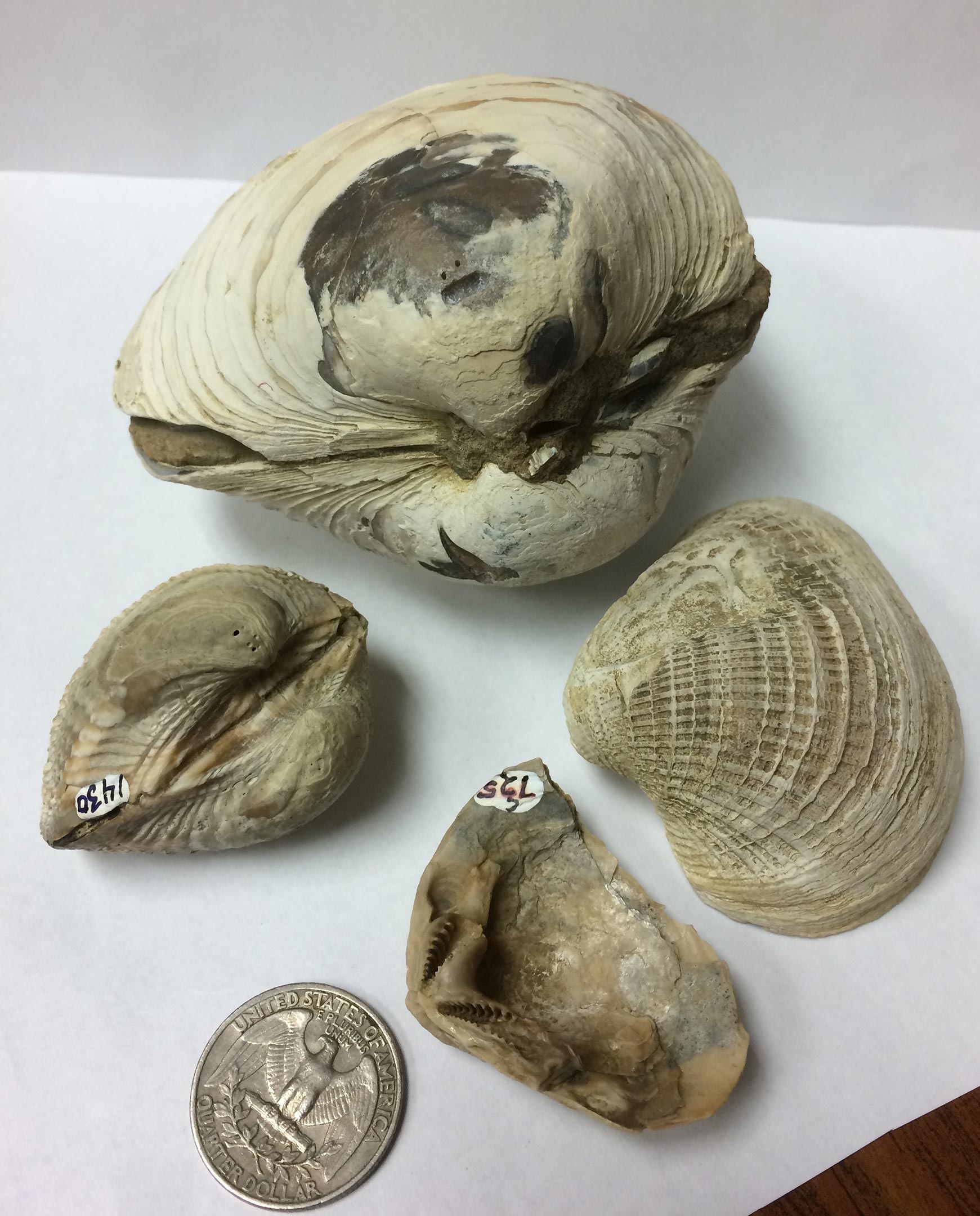
The impact of an asteroid or comet is acknowledged as the principal cause of the mass extinction that killed off most dinosaurs and about three-quarters of the planet's plant and animal species 66 million years ago.
Animal diseases: FG begins policy to combat
·
Allays fear of contagious disease
The Federal Government
(FG) has begun work to have a National control policy for the effective control
and combat of animal diseases and pests in the country just as the fear of
reported outbreak of Contagious Bovine Pleuropneumonia (CBPP) in Bauchi has
been allayed with vaccine provision.
Thursday, 30 January 2020
Invest in pollinator monitoring for long-term gain
 New research shows that for every £1 invested in pollinator monitoring schemes, at least £1.50 can be saved, from otherwise costly independent research projects.
New research shows that for every £1 invested in pollinator monitoring schemes, at least £1.50 can be saved, from otherwise costly independent research projects.‘Agric mechanization: solution to food insecurity, unemployment’
Nigeria to export rice in two years----Minister
 |
| The Minister of Agriculture and Rural Development (FMARD), Alhaji Muhammad Sabo Nanono & the Executive Governor of Ogun State, Prince Dapo Abiodun |
The Minister of Agriculture and Rural Development (FMARD),
Alhaji Muhammad Sabo Nanono has stated that agricultural mechanization is
the solution to unemployment and food insufficiency in Nigeria. This was
contained in a press statement issued and made available to Food Farm News by Ezeaja
Ikemefuna on behalf of director of Information in the ministry.
Wednesday, 29 January 2020
Reduced soil tilling helps both soils and yields
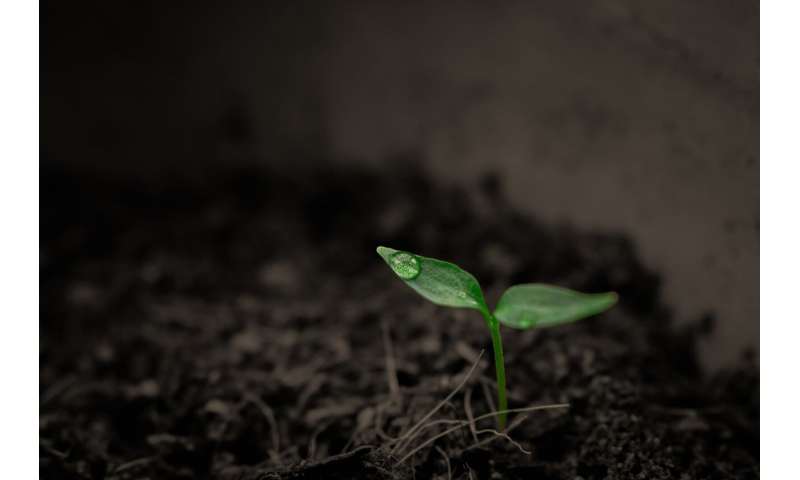 Agriculture degrades over 24 million acres of fertile soil every year, raising concerns about meeting the rising global demand for food.
Agriculture degrades over 24 million acres of fertile soil every year, raising concerns about meeting the rising global demand for food.Tuesday, 28 January 2020
How do you cultivate a healthy plant microbiome?
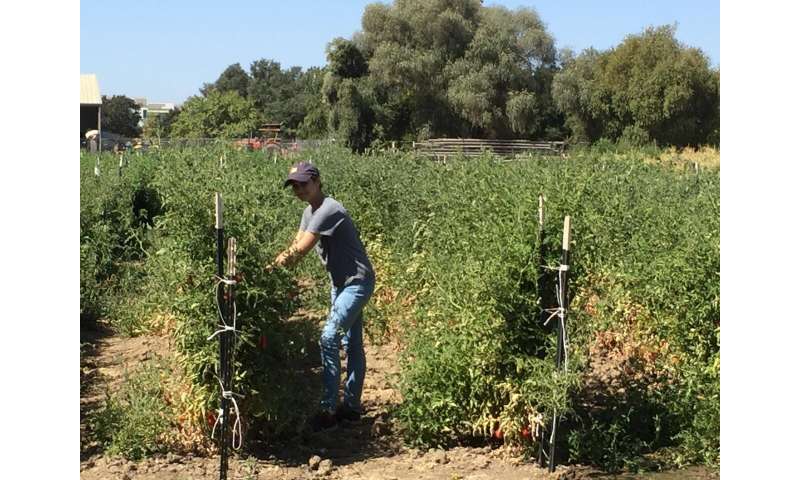 Scientists are homing in on what a healthy human microbiome looks like, mapping the normal bacteria that live in and on the healthy human body. But what about a healthy plant microbiome?
Scientists are homing in on what a healthy human microbiome looks like, mapping the normal bacteria that live in and on the healthy human body. But what about a healthy plant microbiome?Monday, 27 January 2020
How flowers adapt to their pollinators
 Flowering plants are characterized by an astonishing diversity of flowers of different shapes and sizes.
Flowering plants are characterized by an astonishing diversity of flowers of different shapes and sizes. Sunday, 26 January 2020
First 'lab in a field' experiment reveals a sunnier side of climate change
 Pioneering experiments using heated field plots to test the responses of crops to temperature have revealed an unexpected plus side of climate change for farmers.
Pioneering experiments using heated field plots to test the responses of crops to temperature have revealed an unexpected plus side of climate change for farmers.Saturday, 25 January 2020
Farmers hail FG, Ogun for rice milling centres location
·
Partner
Harvest plus
The representative of the leader, cluster youth farmers, Mr.
Yakub Olowookere has hailed the Federal and Ogun state Governments for the rice processing centres and irrigation facility located very close to end
users at Yelwa North local Council saying their advantages for agricultural development
would be enormous to job and wealth creations. This was stated in a press
release made available to Food Farm News.
Less rice, more nutritious crops will enhance India's food supply
 India can sustainably enhance its food supply if its farmers plant less rice and more nutritious and environmentally-friendly crops, including finger millet, pearl millet, and sorghum, according to a new study from the Data Science Institute at Columbia University.
India can sustainably enhance its food supply if its farmers plant less rice and more nutritious and environmentally-friendly crops, including finger millet, pearl millet, and sorghum, according to a new study from the Data Science Institute at Columbia University.Friday, 24 January 2020
A 'Jackalope' of an ancient spider fossil deemed a hoax, unmasked as a crayfish
 Earlier this year, a remarkable new fossil specimen was unearthed in the Lower Cretaceous Yixian Formation of China by area fossil hunters -- possibly a huge ancient spider species, as yet unknown to science.
Earlier this year, a remarkable new fossil specimen was unearthed in the Lower Cretaceous Yixian Formation of China by area fossil hunters -- possibly a huge ancient spider species, as yet unknown to science.Why Nigeria may not stop rice importation

There is no indication that serious effort towards
increasing rice productivity in Nigeria to checkmate importation is being put
in place even at the closure of land borders by the Federal Government (FG).
Food Farm News has gathered.
Thursday, 23 January 2020
Sorghum study illuminates relationship between humans, crops and the environment in domestication

A new study that examines the genetics behind the bitter taste of some sorghum plants and one of Africa's most reviled bird species illustrates how human genetics, crops and the environment influence one another in the process of plant domestication.
EXCLUSIVE: More states prospect NAADI says Project Coordinator
The Federal
Ministry of Industry, Trade and Investment (FMITI) have said that more states
would soon join in the participation of Nigeria Agricbusiness and Agro-
Industry Development Initiative (NAADI) project. This was disclosed by the
project coordinator, and deputy director, of the Ministry, Mr. Irimiya Kaura.
Wednesday, 22 January 2020
2020 SRP: Minister alerts farmers against early planting
The Minister of
Aviation, Sen. Hadi Siriki has cautioned farmers across the country against early rushing into planting based on enormous rainstorm that the country will witness
before the normal planting onset predicted by Nigerian Metrological Agency (NiMet).
Early-life exposure to dogs may lessen risk of developing schizophrenia
 Ever since humans domesticated the dog, the faithful, obedient and protective animal has provided its owner with companionship and emotional well-being.
Ever since humans domesticated the dog, the faithful, obedient and protective animal has provided its owner with companionship and emotional well-being. Tuesday, 21 January 2020
Images speak at the 2020 Seasonal Rainfall Prediction, held in Abuja. Theme: The Role of Climate Information for Decision Making in Changing Climate
Images speak at the 2020 Seasonal Rainfall Prediction, held in Abuja. Theme: The Role of Climate Information for Decision Making in Changing Climate... see more images below
Ancient 'chewing gum' yields insights into people and bacteria of the past
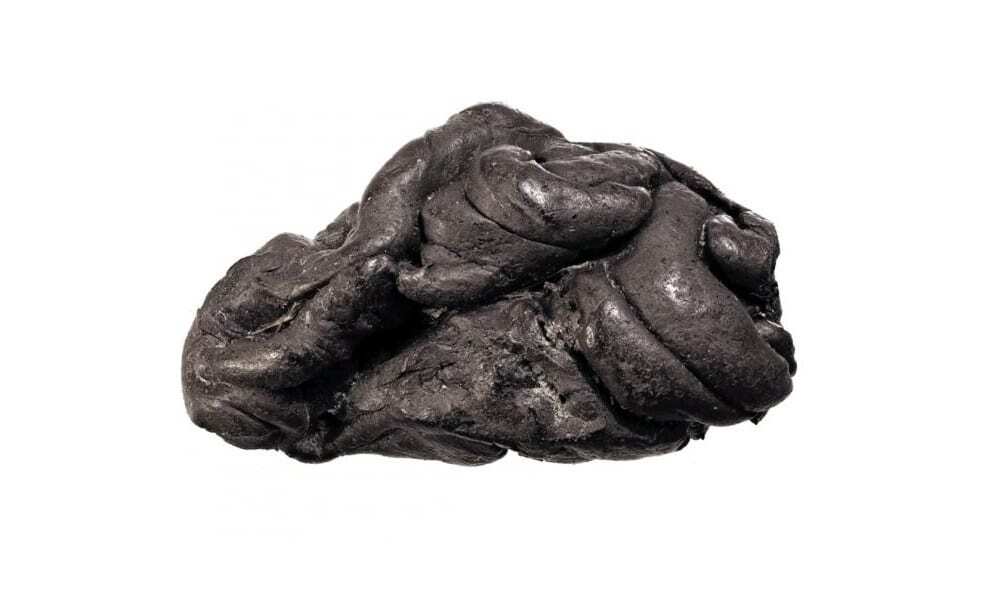 Researchers from the University of Copenhagen have succeeded in extracting a complete human genome from a thousands-of-years old "chewing gum." According to the researchers, it is a new untapped source of ancient DNA.
Researchers from the University of Copenhagen have succeeded in extracting a complete human genome from a thousands-of-years old "chewing gum." According to the researchers, it is a new untapped source of ancient DNA.Monday, 20 January 2020
Scientists find iron 'snow' in Earth's core

The Earth's inner core is hot, under immense pressure and snow-capped, according to new research that could help scientists better understand forces that affect the entire planet.
Sunday, 19 January 2020
Why are giant pandas born so tiny?

Born pink, blind, and helpless, giant pandas typically weigh about 100 grams at birth -- the equivalent of a stick of butter. Their mothers are 900 times more massive than that.
EXCLUSIVE: FG, AfDB give pass nod to ATAPS-Project says Arabi
 |
| The National Coordinator, Agricultural Transformation Agenda Programme (ATAPS-Project 1) Dr. Ibrahim Mohammed Arabi |
The National Coordinator, Agricultural Transformation Agenda Programme (ATAPS-Project 1) Dr. Ibrahim Mohammed Arabi said the no objection approval of the Federal Government (FG) and African Development Bank (AfDB) to the economic and social infrastructure projects to the rural farmers and other stakeholders across the four staple crop processing zones was a great achievement to wealth creation policy of the Government. Dr. Arabi told Food Farm News last week in his office.
Saturday, 18 January 2020
The delicate water lily: A rose by another name?

A new study published in Nature reports the 409-megabase genome sequence of the blue-petal water lily (Nymphaea colorata).
Friday, 17 January 2020
Images speak as The Nigerian National Entrepreneurship Forum, (NEF) in partnership with Federation of Agricultural Commodity Association of Nigeria (FACAN), Signs MoU on Access to $5bn Grant From Chinese Govt in Abuja
Images speak as The Nigerian National Entrepreneurship Forum, (NEF) in partnership with Federation of Agricultural Commodity Association of Nigeria (FACAN), Signs MoU on Access to $5bn Grant From Chinese Govt in Abuja see more images below
Star fruit could be the new 'star' of Florida agriculture
 It's not just oranges that grow in Florida. Carambola, or star fruit as most in the United States call it, is gaining popularity.
It's not just oranges that grow in Florida. Carambola, or star fruit as most in the United States call it, is gaining popularity. Thursday, 16 January 2020
Scrubbing carbon dioxide from smokestacks for cleaner industrial emissions
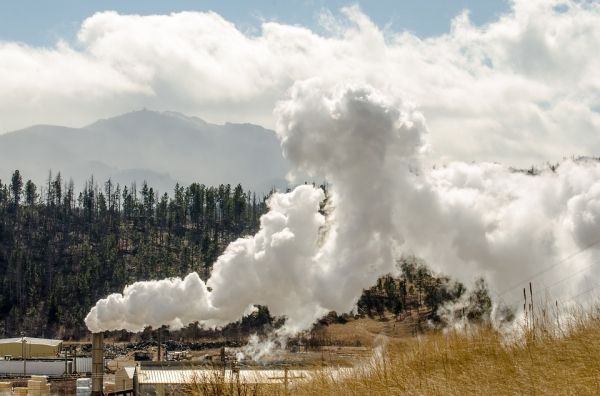
An international team co-led by an Oregon State University chemistry researcher has uncovered a better way to scrub carbon dioxide from smokestack emissions, which could be a key to mitigating global climate change.
Wednesday, 15 January 2020
New methods promise to speed up development of new plant varieties
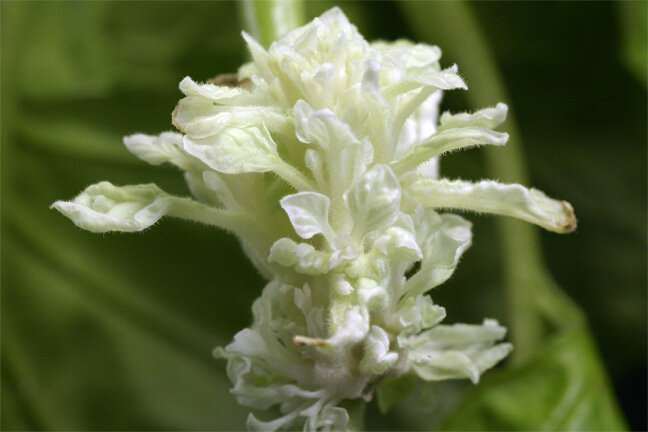 A University of Minnesota research team recently developed new methods that will make it significantly faster to produce gene-edited plants.
A University of Minnesota research team recently developed new methods that will make it significantly faster to produce gene-edited plants. EXCLUSIVE: NIMET slates 2020 SRP for next week
 |
| NIMET Chief Executive Officer (CEO) Prof. Sani Abubakar Mashi & Minister of Aviation, Hadi Sirika |
Effort to release the year 2020 Seasonal Rainfall Predication
(SRP) for the farming seasons preparation is already on top gear as Nigerian
Meteorological Agency (NiMet) may on 21st, January release the forecast
for the use of the public especially farmers. Food Farm News visits to NiMet office yesterday revealed this.
Tuesday, 14 January 2020
EXCLUSIVE: FG partners Netherlands govt. to get a new seed road map
The Federal
Government (FG) through National Agricultural Seeds Council (NASC) in partnership
with Netherland Government is already working on new seeds road map that will
give an effective systemic operation for availability of improved seeds with
different varieties to farmers.
Focus on food security and sustainability
 The number of malnourished people is increasing worldwide. More than two billion people suffer from a lack of micronutrients.
The number of malnourished people is increasing worldwide. More than two billion people suffer from a lack of micronutrients. EXCLUSIVE: USAID, NAIC partner on effective agribusiness activity
The United States Agency for International Development
(USAID) and Nigerian Agricultural Insurance Commission (NAIC) has entered into
partnership agreement that will ameliorate constrains confronting agribusiness
financing and investment activities along the agricultural value chains in
Nigeria.
Monday, 13 January 2020
Azteca ant colonies move the same way leopards' spots form
 What could Azteca ants in coffee farms in Mexico have in common with leopards' spots and zebras' stripes?
What could Azteca ants in coffee farms in Mexico have in common with leopards' spots and zebras' stripes?Sunday, 12 January 2020
Study sheds light on 'overlooked' bee species
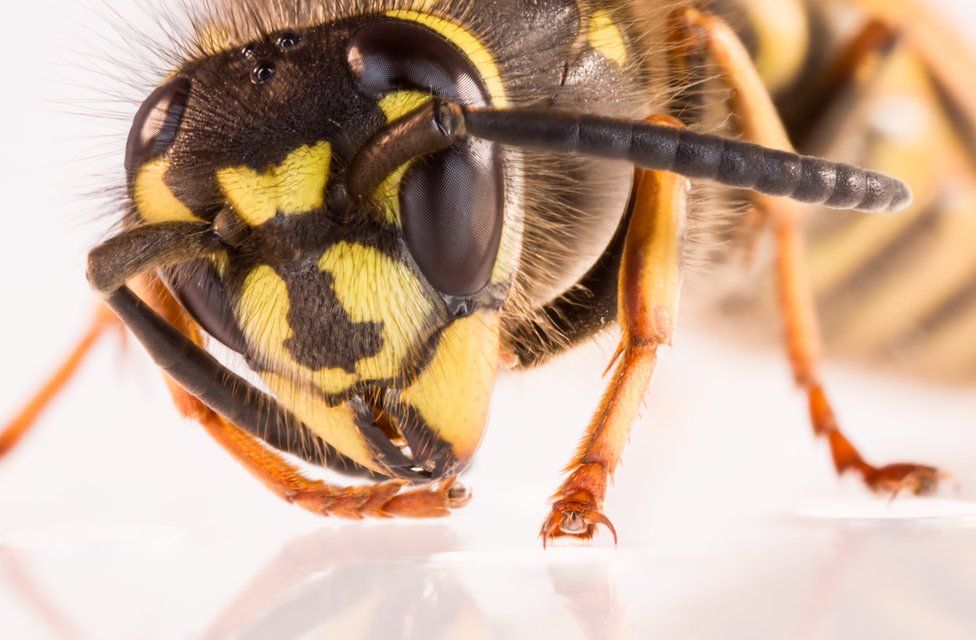 The UK's first citizen science project focusing on solitary, ground-nesting bees has revealed that they nest in a far broader range of habitats than previously thought.
The UK's first citizen science project focusing on solitary, ground-nesting bees has revealed that they nest in a far broader range of habitats than previously thought.EXCLUSIVE: FG set to revive agro aircrafts for pest, disease control
· Yet to pay locust forecast dues

The Federal Ministry
of Agriculture and Rural Development (FMARD) will soon resuscitate its moribund Agro Aviation unit to checkmate high contract cost being expended on
controlling the pest and other disease activities that have suffered set back
in the last twelve years just as the ministry is yet to pay any locust forecast
dues for about three decades.
Saturday, 11 January 2020
Why polar bears at sea have higher pollution levels than those staying on land
 As the climate changes, myriad animal populations are being impacted. In particular, Arctic sea-ice is in decline, causing polar bears in the Barents Sea region to alter their feeding and hunting habits. Bears that follow sea-ice to offshore areas have higher pollutant levels than those staying on land -- but why? A new study in ACS' Environmental Science & Technology reports the likely reasons.
As the climate changes, myriad animal populations are being impacted. In particular, Arctic sea-ice is in decline, causing polar bears in the Barents Sea region to alter their feeding and hunting habits. Bears that follow sea-ice to offshore areas have higher pollutant levels than those staying on land -- but why? A new study in ACS' Environmental Science & Technology reports the likely reasons.Friday, 10 January 2020
Plant researchers examine bread aroma: Modern and old wheat varieties taste equally good
 The scientists compared taste and aroma of different breads baked in close cooperation with an artisan baker and a miller using flour from old as well as modern wheat varieties. In the journal Food Research International the research team now also describes how it can predict not only the taste but also other characteristics of bread using molecular biological approaches.
The scientists compared taste and aroma of different breads baked in close cooperation with an artisan baker and a miller using flour from old as well as modern wheat varieties. In the journal Food Research International the research team now also describes how it can predict not only the taste but also other characteristics of bread using molecular biological approaches.Thursday, 9 January 2020
Large atmospheric waves in the jet stream present risk to global food production

In a new study published today in Nature Climate Change, scientists show how specific wave patterns in the jet stream strongly increase the chance of co-occurring heatwaves in major food producing regions of Northern America, Western Europe and Asia.
Wednesday, 8 January 2020
Trashed farmland could be a conservation treasure
 Low-productivity agricultural land could be transformed into millions of hectares of conservation reserve across the world, according to University of Queensland-led research.
Low-productivity agricultural land could be transformed into millions of hectares of conservation reserve across the world, according to University of Queensland-led research.EXCLUSIVE: Researchers want trade incentive, others for organic farming in WA
The Economic Community of West
African States (ECOWAS) and National Ministries of Trade in the member countries
have been called upon by economic researchers to give special incentive to
export of organic produce in Africa with other supportive measures.
Tuesday, 7 January 2020
Experts unlock key to photosynthesis, a find that could help us meet food security demands
 Scientists have solved the structure of one of the key components of photosynthesis, a discovery that could lead to photosynthesis being 'redesigned' to achieve higher yields and meet urgent food security needs.
Scientists have solved the structure of one of the key components of photosynthesis, a discovery that could lead to photosynthesis being 'redesigned' to achieve higher yields and meet urgent food security needs.Monday, 6 January 2020
Ancient Egyptians gathered birds from the wild for sacrifice and mummification

In ancient Egypt, Sacred Ibises were collected from their natural habitats to be ritually sacrificed, according to a study released November 13, 2019 in the open-access journal PLOS ONE by Sally Wasef of Griffith University, Australia and colleagues.
Organic: Finding reveals neem oil as cowpea repellent
Contrary to the general belief that
organically produced crops cannot match with the pace of our growing population
toward sustainable food security, a research finding has confirmed that cowpea
now got an organic pesticide to combat the devastating disease impeding its
commercial production. This was contained in a number 8 monograph, 2018 of the
best practices in Organic Agriculture production system.
Sunday, 5 January 2020
A new tomato ideal for urban gardens and even outer space
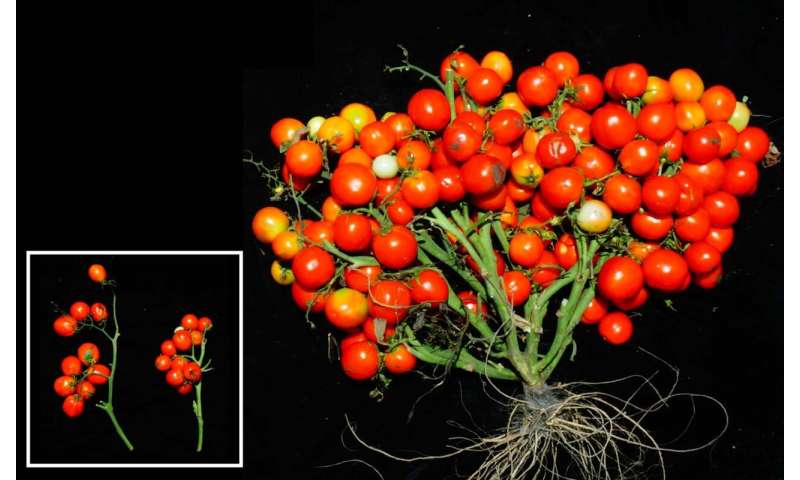 Farmers could soon be growing tomatoes bunched like grapes in a storage unit, on the roof of a skyscraper, or even in space. That's if a clutch of new gene-edited crops prove as fruitful as the first batch.
Farmers could soon be growing tomatoes bunched like grapes in a storage unit, on the roof of a skyscraper, or even in space. That's if a clutch of new gene-edited crops prove as fruitful as the first batch.Saturday, 4 January 2020
Children allergic to cow's milk smaller and lighter
 Children who are allergic to cow's milk are smaller and weigh less than peers who have allergies to peanuts or tree nuts, and these findings persist into early adolescence.
Children who are allergic to cow's milk are smaller and weigh less than peers who have allergies to peanuts or tree nuts, and these findings persist into early adolescence. Friday, 3 January 2020
AfDB, Ogun State partner on cargo airport for produce
The President of African Development Bank (AfDB), Dr. Akinwunmi
Adesina has promised to support Ogun state government in her drive to upscale
agricultural productivity through the establishment of cargo airport that will
uplift agricultural produce to immediate point of demand outside the country.
Overuse of herbicides costing UK economy £400 million per year
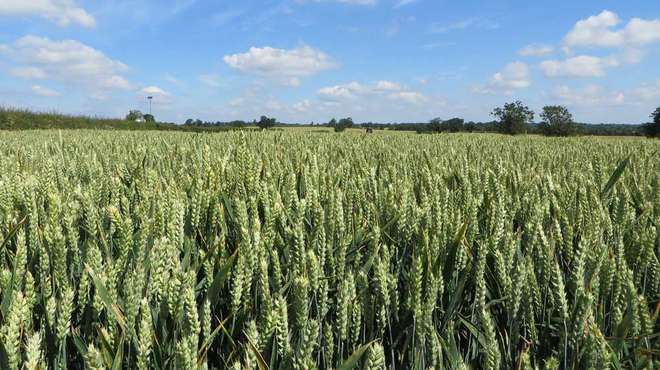 Scientists from international conservation charity ZSL (Zoological Society of London) have for the first time put an economic figure on the herbicidal resistance of a major agricultural weed that is decimating winter-wheat farms across the UK.
Scientists from international conservation charity ZSL (Zoological Society of London) have for the first time put an economic figure on the herbicidal resistance of a major agricultural weed that is decimating winter-wheat farms across the UK.Thursday, 2 January 2020
Mealworms safely consume toxic additive-containing plastic
 Tiny mealworms may hold part of the solution to our giant plastics problem. Not only are they able to consume various forms of plastic, as previous Stanford research has shown, they can eat Styrofoam containing a common toxic chemical additive and still be safely used as protein-rich feedstock for other animals, according to a new Stanford study published in Environmental Science & Technology.
Tiny mealworms may hold part of the solution to our giant plastics problem. Not only are they able to consume various forms of plastic, as previous Stanford research has shown, they can eat Styrofoam containing a common toxic chemical additive and still be safely used as protein-rich feedstock for other animals, according to a new Stanford study published in Environmental Science & Technology.Conservation's hidden costs take bite out of benefits
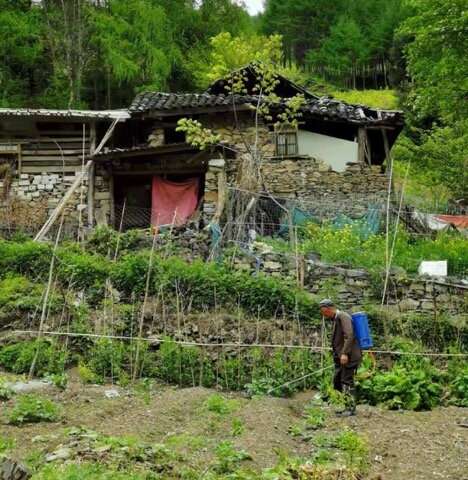 Returning croplands to forests is a sustainability gold standard to mitigate climate change impacts and promote conservation. That is, new research shows, unless you're a poor farmer.
Returning croplands to forests is a sustainability gold standard to mitigate climate change impacts and promote conservation. That is, new research shows, unless you're a poor farmer.Wednesday, 1 January 2020
Mowing urban lawns less intensely increases biodiversity, saves money and reduces pests
Subscribe to:
Comments (Atom)


















